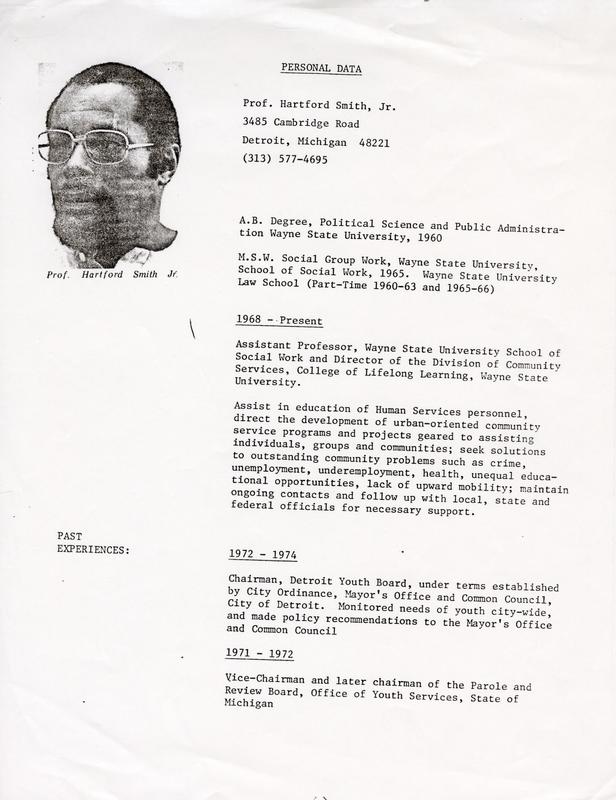Background

The first page from one of Smith's resumes, highlighting his experience as assistant professor of social work at Wayne State University.
Hartford Smith Jr.’s education and professional experiences helped lead him to producing Seeds of Discontent, a 1968 radio documentary series that addressed contemporary topics including race relations, civil rights, poverty, youth, and crime. The series directly impacted one of the Carnegie Foundation's major studies of educational policy, and it was cited in Herb Boyd's acclaimed book Black Detroit: A People's History of Self-Determination.
According to resumes and personal profiles in the collection, Smith was born in Fayette, Alabama, in 1937, where he graduated from Fayette County Training School in 1955. He took classes at Morehouse College in Atlanta for one year before moving to Detroit in 1956 and enrolling at Wayne State University. After graduating with a master’s degree in social work in 1965, he worked with institutions including the Wayne County Juvenile Court’s Youth Home and the Jewish Community Center. His social work experience continued to deal with challenges facing youth in Detroit, particularly in the development of a program called the Screening and Intake Unit, which helped coordinate staff in addressing problems between the county’s juvenile court and the state’s social services in offering support to delinquent youth. While he worked on these projects, he also taught part-time in Wayne State’s School of Social Work.
Through his personal experiences and his career as a social worker and educator, Smith became very concerned with mass media’s coverage of social problems in the United States. He was particularly troubled by coverage of riots in American cities that did not address the foundational issues that affected people’s lives and led to unrest, like policing, housing, employment, and education. After Smith spoke with colleagues and friends about his perspective and concerns, one of them recommended that he produce a radio series to share his views more widely. This friend connected him with Wayne State’s radio station WDET, and he successfully pitched the series Seeds of Discontent and worked on it without pay in the evenings. The series ran for twenty-six episodes, and it was distributed throughout the United States through the National Educational Radio Network.